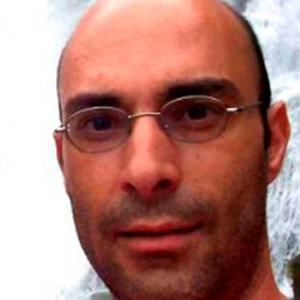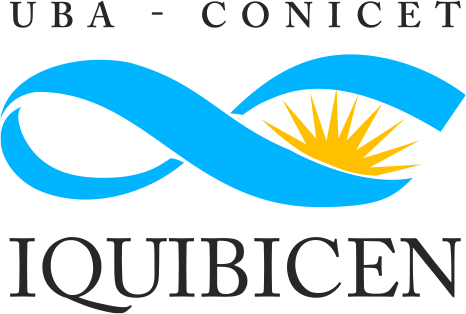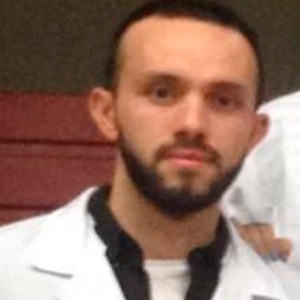
Líneas de investigación:
–IMMUNOTHERAPY FOR CANCER. Immunotherapy is the most promising new cancer treatment approach since the development of the first chemotherapies in the late 1940s. Two main types of cancer immunotherapies are currently being evaluated: a) Antigen-targeted immunotherapy: tumors express Tumor-Associated-Antigens (TAA) which can be used to activate immune mechanisms able to eliminate transformed cells. The list of effective TAA is still very limited; therefore it is imperative to propose and experimentally evaluate new ones. b) The second type of cancer immunotherapy is based on bypassing a plethora of immunosuppressive mechanisms that tumors activate to foster a tolerogenic microenvironment. Nowadays, active investigation is devoted to both types of immunotherapies but in general as separate entities; one of our projects propose a preclinical evaluation of a simple immunization procedure that combines for the first time both types of therapies. In summary, our results will significantly contribute to the design of novel anticancer therapeutic strategies which, in combination with current treatments, will be of paramount clinical benefit in patients with solid cancers.
-INTRINSIC ROLES OF GALECTINS IN THE REGULATION OF LYMPHOCYTE ANTI-TUMOR FUNCTIONS. A better understanding of the molecular mechanisms involved in regulating tumor microenvironment is essential in order to develop new therapies which are effective for prostate cancer. In this context, one of the molecular axes of high impact in determining the properties of the microenvironment associated with prostatic carcinoma involves galectins, making it imperative to understand all molecular processes in which these lectins are involved. This project challenges the assumption that galectins, besides exerting an extracellular role promoting a tolerogenic microenvironment, may mediate additional regulatory roles arising from their intracellular properties in responding lymphocytes. It would be the combination of all of these functional properties which determine whole galectins’ roles as regulator of the profile of the immune response induced by tumors. This project is developed in the context of an international collaboration, will allow a better understanding of the paradigms by which galectins regulate tumor progression in their complex microenvironment associated. The long term goal of this project is to generate basic findings that may be transferable to the clinical setting, where new procedures may impact on survival of patients with prostate cancer.
-MOLECULAR and CELLULAR BIOLOGY OF THE DISEASE PROGRESSION. Prostate cancer (PCa) is a major problem of health, and it is currently the second most prevalent cancer in men (IARC, WHO). However, its incidence continues to rise due to higher life expectancy and subsequent population ageing. The association of surgery, radiation treatments and androgen ablation are effective against localized prostate tumors. However, between 15 and 20% of patients with PCa evolve into advanced stages of the disease developing bone and lymph node metastases. There are no effective treatments for these stages, mainly because tumor growth becomes resistant to castration or taxane-based treatments. Therefore, in-depth understanding of the molecular mechanisms involved in the transition from early towards advanced phases of PCa will allow an earlier diagnosis and consequent prevention of metastasis
-SMALL RNA – ARGONAUTE COMPLEX as REGULATORS OF GLYCOME’S GENES EXPRESSION in PATHOLOGIC CONDITIONS. The recent discovery of the RNA Interference (RNAi) in mammals had a major impact on biomedical research. RNAi requires the presence of small non-coding RNA (sRNA) with a greater or lesser complementarity with a single or multiple target mRNA . The combination of these sRNA, as specific guides, with a nucleoprotein complex containing Argonaute type nucleases allows the extinction of a specific gene by cleavage or inhibition of translation of the cognate target mRNA. Since then, the comprehensive study of sRNA allows the discovery of other independent mechanisms of RNAi also responsibles for the regulation of gene expression, not only at the level of mature mRNAs and therefore at post-transcriptional and cytoplasmic effects as PTGS process, but also at the transcriptional and Nuclear level as TGS mechanism, also associated with a protein of the Argonaute family. Small RNAs-Argonaute complexes are then unsuspected mechanisms of gene regulations and our projects is based their implication on physiological or pathological conditions. A better understanding of the origin of cancers will identify new therapeutic targets and effective prognostic markers.
Estudiantes motivados/as, becarios doctorales y postdoctorales interesados/as contactarse con los Dres. Daniel Georges Compagno y Diego José Laderach.
Combining inhibition of galectin-3 with and before a therapeutic vaccination is critical for the prostate-tumor-free outcome. Tiraboschi C, Gentilini L, Velazquez C, Corapi E, Jaworski FM, Garcia Garcia JD, Rondón Y, Chauchereau A, Laderach DJ, Compagno D. J Immunother Cancer. 2020 Dec;8. https://jitc.bmj.com/content/8/2/e001535
Galectins as Checkpoints of the Immune System in Cancers, Their Clinical Relevance, and Implication in Clinical Trials. Compagno D, Tiraboschi C, Garcia JD, Rondón Y, Corapi E, Velazquez C, Laderach DJ. Biomolecules. 2020 May 12;10(5). doi: 10.3390/biom10050750. Review. PubMed PMID: 32408492; PubMed Central PMCID: PMC7277089. https://www.ncbi.nlm.nih.gov/pubmed/32408492/
Endogenous Galectin-1 in T Lymphocytes Regulates Anti-prostate Cancer Immunity. Corapi E, Carrizo G, Compagno D, Laderach D. Front Immunol. 2018;9:2190. doi: 10.3389/fimmu.2018.02190. eCollection 2018. PubMed PMID: 30319642; PubMed Central PMCID: PMC6169479. https://www.ncbi.nlm.nih.gov/pubmed/30319642/
Regulation of eIF4F Translation Initiation Complex by the Peptidyl Prolyl Isomerase FKBP7 in Taxane-resistant Prostate Cancer. Garrido MF, Martin NJ, Bertrand M, Gaudin C, Commo F, El Kalaany N, Al Nakouzi N, Fazli L, Del Nery E, Camonis J, Perez F, Lerondel S, Le Pape A, Compagno D, Gleave M, Loriot Y, Désaubry L, Vagner S, Fizazi K, Chauchereau A. Clin Cancer Res. 2019 Jan 15;25(2):710-723. doi: 10.1158/1078-0432.CCR-18-0704. Epub 2018 Oct 15. PMID: 30322877. https://pubmed.ncbi.nlm.nih.gov/30322877/
Stable and high expression of Galectin-8 tightly controls metastatic progression of prostate cancer. Gentilini L, Tiraboschi C, Jaworski F, González Pérez I, Chauchereau A, Kotler M, , Laderach D, Compagno D. Oncotarget. 2017. doi: 10.18632/oncotarget.17963 https://www.oncotarget.com/article/17963/text/
Agencia Nacional de Ciencia y Tecnología. PICT-2019-01451. “Evaluación de Inmunoterapias combinadas para controlar la recurrencia del cáncer de la próstata”. Director: COMPAGNO, DANIEL GEORGES








